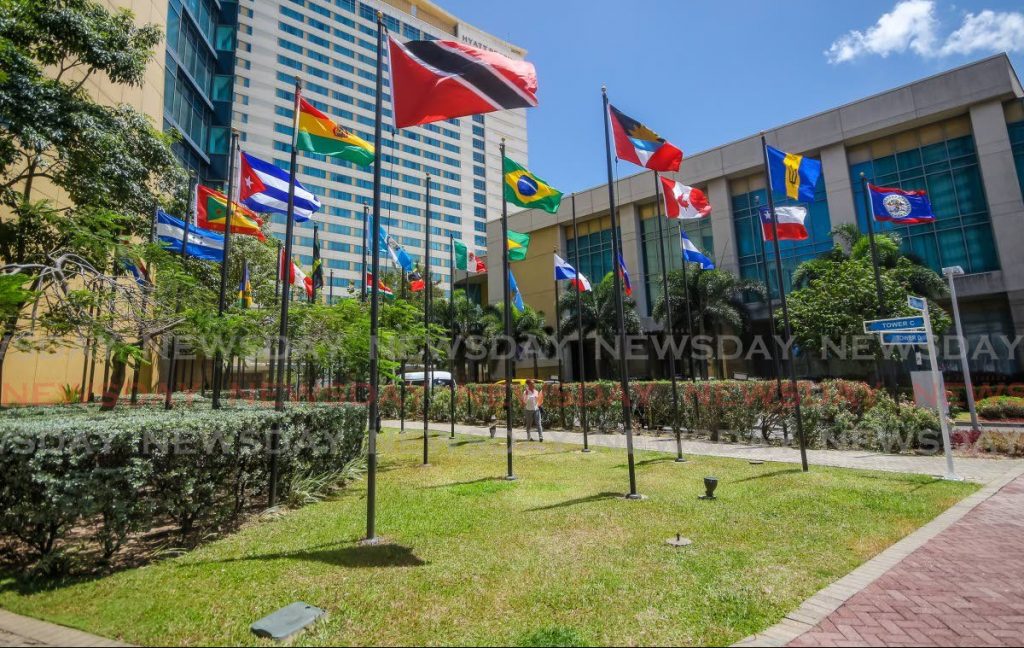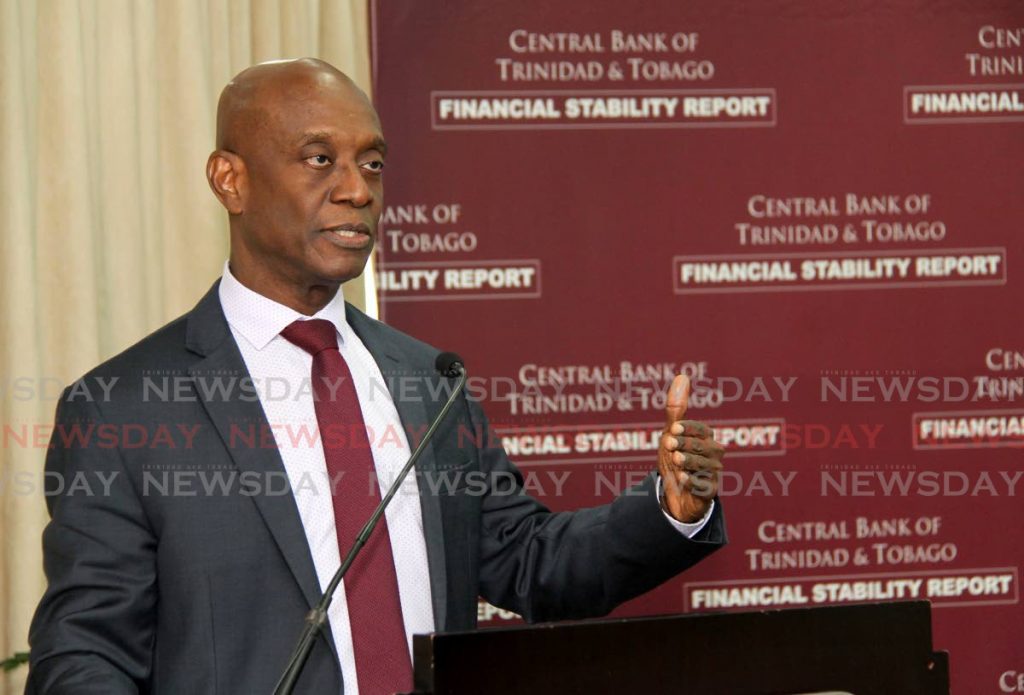TT advocates for debt solutions, more money for developing countries at G-24 summit

Trinidad and Tobago is one of the Intergovernmental Group of Twenty-Four on International Monetary Affairs and Development (G-24), which coordinates the position of developing countries on monetary and development issues in the deliberations and decisions of the Bretton Woods Institutions (BWI) – the International Monetary Fund and the World Bank. In particular, the G-24 focuses on issues on the agendas of the International Monetary and Financial Committee (IMFC) and the Development Committee (DC) as well as in other relevant international fora. The BWI meets twice per year, in the spring and the fall. This year, because of the covid19 global pandemic the meetings are virtual. The following is TT's contribution, delivered by Central Bank Governor Dr Alvin Hilaire.
Statement by Trinidad and Tobago to the G-24 Ministers and Governors’ Virtual Meeting, April 14, 2020
The ongoing battle against covid19 has added to the complexities of the global economy and its impact is likely to be severe and far-reaching, particularly for Caribbean countries. On an individual, community, national and regional level, this pandemic has affected many in ways we had never imagined in our lifetime, and even to this point, we are still highly uncertain about its duration, the future state of our economies and the consequential behavioural changes that are likely to be exhibited going forward. These imponderables compound the astronomical challenges facing our respective economies as we grapple with preventing and containing the spread of the virus; saving lives; managing fears and anxiety; and supporting macroeconomic conditions which are also exposed to threats from other sources, including commodity price shocks and natural disasters. Caribbean countries, because of their small size and lack of economic diversification, will be disproportionately affected by this crisis and may experience a relatively longer period to recover. Many of the domestic and international restrictions to contain the virus are directly impacting the provision of tourism services. For the tourism-dependent countries, this sector contributes significantly to GDP, employment, government revenues and foreign exchange earnings. Preliminary projections suggest that these economies, which were previously expected to expand by 1.1 per cent in 2020, are now set to contract by 7.5 per cent, and the outturn maybe even worse depending on the duration of the pandemic and future changes in behavioural patterns. In the wake of this humanitarian crisis, commodity prices have faced immense downward pressure, with WTI crude oil prices declining from around US$60 per barrel at the start of 2020 to currently hover just above US$20 per barrel. The confluence of lower commodity prices and the adverse social and economic effects of covid19 will have a devastating impact on commodity-exporting Caribbean nations. These countries are expected to see their growth rates fall into negative territory in 2020, except for Guyana, where economic growth is estimated to be lower than earlier projections by approximately 30 percentage points. The high level of spending required for the immediate response to the outbreak, the strengthening of deficient health infrastructures and the support of businesses and individuals has created large financing gaps for the respective countries. Initial estimates suggest that the collective gap for the region could be around US$2.5 billion. Many of the economies are already carrying elevated debt levels and face increased downside risks stemming from the threat of an above-average hurricane season in the coming months. This precarious situation is therefore likely to be magnified by unfavourable credit rating movements which would make financing on the international market much more difficult to access. In this regard, we see the financing role of multilateral institutions as extremely critical.

We recognise that the wide-ranging implications of this pandemic call for a well-coordinated response from the IMF, World Bank Group, other multilateral development banks (MDBs) and international organisations, and greatly appreciate the emergency financing options offered by the IMF and the World Bank. These support measures are meant to be expeditious, have limited conditions and carry low financing cost. However, Caribbean countries with no active engagements are unable to gain speedy access to these emergency funds during this critical time when they are desperately needed. As such, we hope that the flexibilities associated with the facilities are continuously evaluated to ensure that eligible countries gain rapid access, bearing in mind the facilities’ primary objectives, which are to manage the outbreak and minimise the economic and social fallouts. We believe that a scaled-up response would be required, particularly if the crisis is extended for an inordinate period. Accordingly, we urge the IMF and World Bank to be more comprehensive and proactive in their response, considering possible future outcomes for the outbreak and the likely spillover effects. We therefore ask for consideration to be given to the following:
(1) Exploring creative debt solutions for those countries in need, especially the small and vulnerable states
(2) Repurposing the Catastrophe Containment and Relief Trust (CCRT) to allow more vulnerable countries to benefit as opposed to only low-income countries
(3) Providing additional liquidity. In the case of the IMF, consideration should be given to a general special drawing rights (SDR) allocation, like what was done in 2009 during the global financial crisis. This will provide immediate additional liquidity to all member countries.
Finally, we encourage the IMF and World Bank to deepen collaborative efforts and continue their strong coordination with other institutions as these would improve the effectiveness of support measures which would redound to the benefit of all countries.
PUT IN BOX
G-24 members
Region I (Africa):
Algeria
Côte d'Ivoire
DR Congo
Egypt
Ethiopia
Gabon
Ghana
Kenya
Morocco
Nigeria
South Africa
Region II (Latin America and the Caribbean):
Argentina
Brazil
Colombia
Ecuador
Guatemala
Haiti
Mexico
Peru
Trinidad and Tobago
Venezuela
Region III (Asia):
China
India
Iran
Lebanon
Pakistan
Philippines
Sri Lanka
Syria

Comments
"TT advocates for debt solutions, more money for developing countries at G-24 summit"